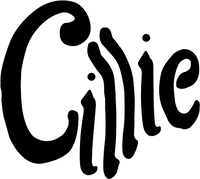

Regenerative Farming:
Our farm partners shear their flock in Australia, where Responsible Wool Standard practices are employed. This means that the farm supports the natural functions of the environment. They employ regenerative agriculture as a holistic farming approach. This focuses on developing the biology and fertility of soils as the basis of the entire farm ecosystem. RWS farming supports soil systems, increases biodiversity, improves water cycles, supports bio-sequestrian, increases resilience to climate function, and strengthens soil health.
Non-Mulese Shearing:
RWS defines mulesing as any traditional or nontraditional method of removing the skin around the breech and tail of the lambs. RWS farms explicitly prohibit this practice of mulesing by shears or other methods. This encourages the humane treatment of flock and prioritises the well being of sheep over speed and improper breeding.
Reduction of Transportation:
The wool is transported from Australia to Zhejiang Province, China for processing. Often times wool is sent to multiple facilities for combing, spinning, top dyeing, and scouring. The wool Cillie uses is processed by a company called Xinao. This particular wool processor works in a uniquely vertical way, where it manages all wool processing in the one facility. This reduces the carbon emissions of transportation between each of these processes.
Supply Chain Tracking:
Not only does Xinao use RWS wool, but also it is a Bluesign partner. Bluesign provides a comprehensive production control system to limit the human health and environmental impacts of textile manufacturing. This means Xinao practices full supply chain transparency, continuously reduces air and water emissions and prohibit the use of harmful substances and chemicals in their processing. This guarantees sustainable production processes as well as high levels of safety for both people and planet.


Zero Waste Knitting:
The prepared yarn is then sent to Dong Guan where it is knitted and linked. It goes to a manufacturer called DONG GUAN HENG CHEN GARMENT CO.,LIMITED. There is guaranteed no subcontracting throughout the whole process. Flat bed knitting is a particularly special way of creating pieces, because it utilises zero waste practices. Each piece is knit to shape with no off cut waste. The knit pieces are then linked by hand at the same facility.
Social Compliance:
DONG GUAN HENG CHEN
GARMENT CO.,LIMITED is also an amfori Social Audited manufacturer, meaning they have been fully monitored for their social practices. They received an A for The Rights of Freedom of Association and Collective Bargaining, No Discrimination, No Child Labour, Special Protection for Young Workers, No Precarious Employment, No Bonded Labour, Protection of the Environment, and Ethical Business Behaviour.
In terms of working hours, it was shown that 15 out of 15 sample population employees worked in excess of the statutory overtime hour limits. They received a D in this area. We also believe there is room for improvement in regards to fair remuneration. The employees working here are paid slightly above minimum wage.
Hand Embroidery
The blankets are hand embroidered in the same facility. Each blanket has embroidery that uses 43% Alpaca, 43% RWS Wool, 13% Nylon, 1%Spandex yarn. This yarn is predominantly grown in Cape Wools, South Africa then sent to Baiya Textile & Tech. Co., LTD. to be spun and dyed. Both the growers and spinners comply with the Responsible Alpaca Standard, Responsible Wool Standard. Baiya Textile & Tech. Co., LTD. also complies with Global Recycled Standard and Oeko-Tex Certification.
Because we used such a small quantity of this yarn, we do not have access to any certificates and are only sharing the information we found on the yarn cards.
This yarn has some synthetic content and is the only part of the blanket that is not fully biodegradable. We recommend removing this yarn at the end of the blanket's life cycle, so that the remaining can properly decompose.
Oeko-Tex Cotton Labels
Each label is jacquard woven with 100% Oeko-Tex certified cotton. Oeko-Tex 100 Standard guarantees that the label is free from harmful substances and chemicals that could be dangerous for humans and the planet. However, this certificate does not directly address sustainability and we are looking for new labels to work with in the future.
This label is woven in Dong Guan at Dongguan Global Eco Tech Co., Ltd. While they have provided us with Oeko-Tex certification, they have not undergone any social auditing.
In the future, we hope to be even more transparent about our supply chain and comply with the industry's best practices. While we have received all certification documentation, this still does not provide us with the comprehensive supply chain information we are after. In order to receive this, you need something called a Transaction Certificate. You are only able to have access to these when you order over 500kg of material. We are not there yet, but as we grow, the aim is to continuously provide as much transparency as possible.
